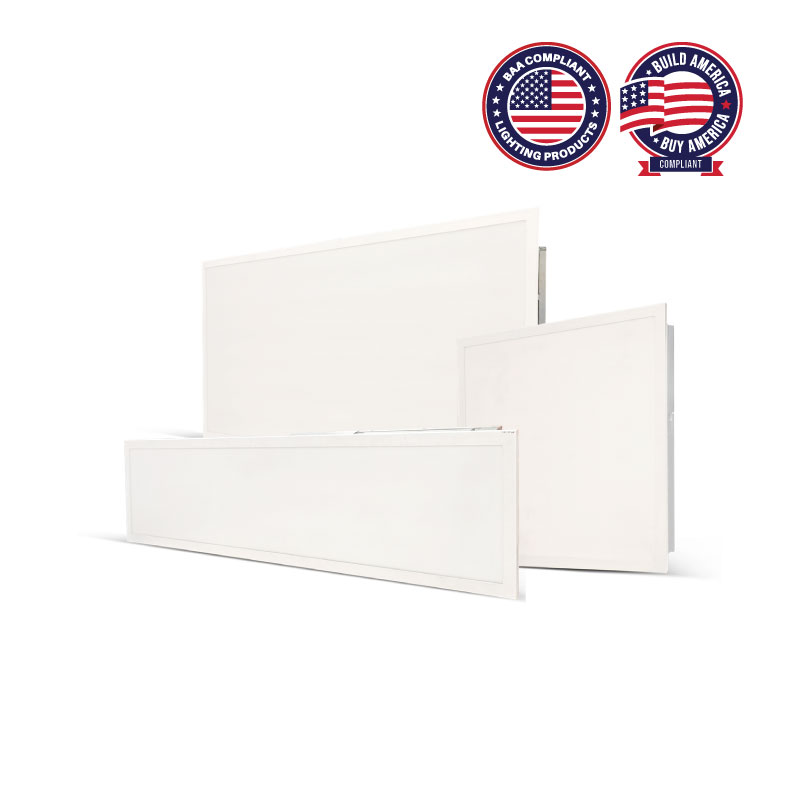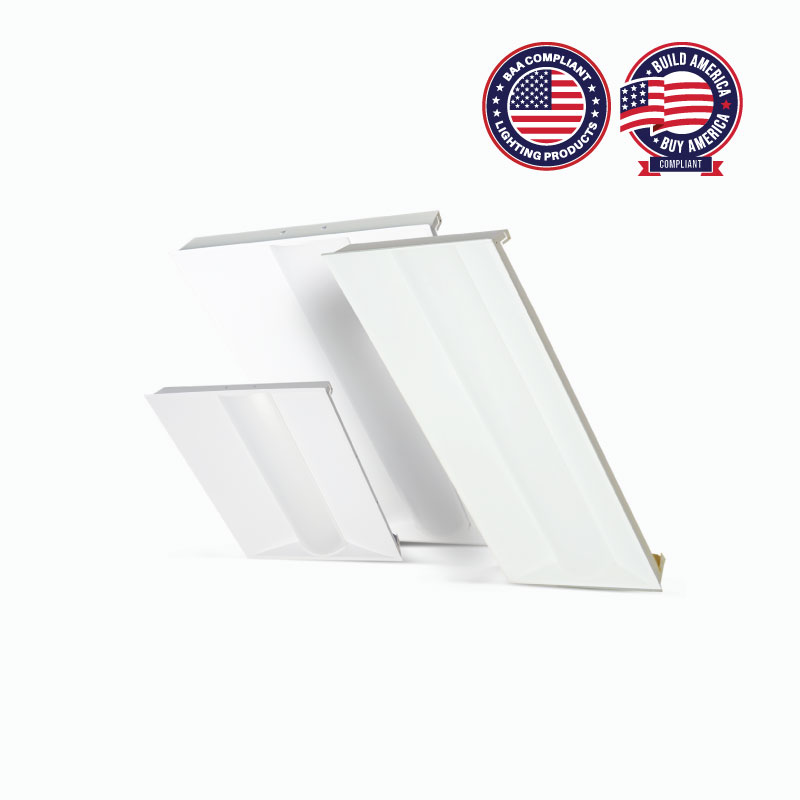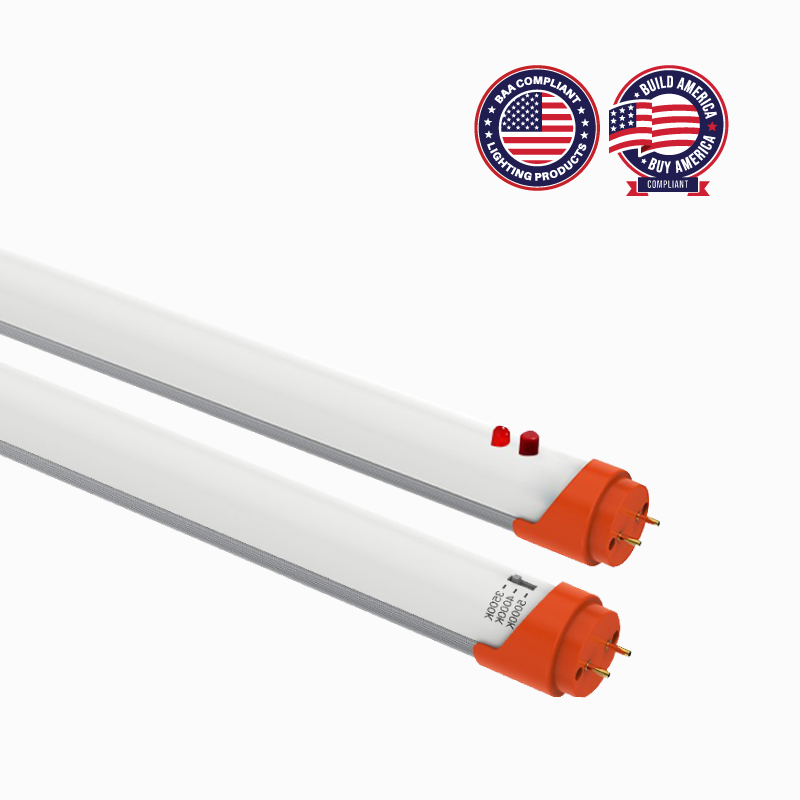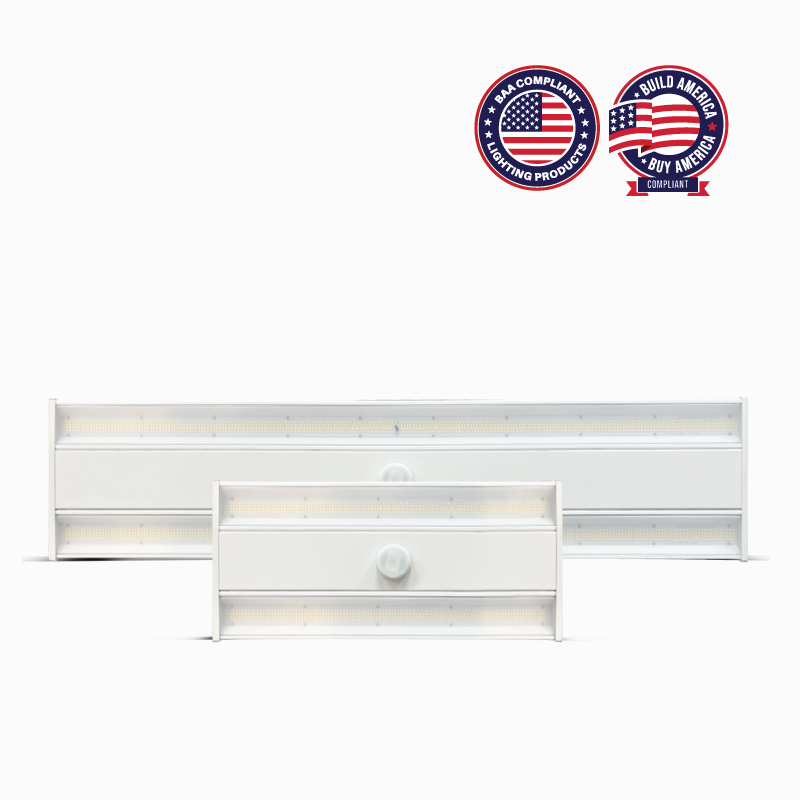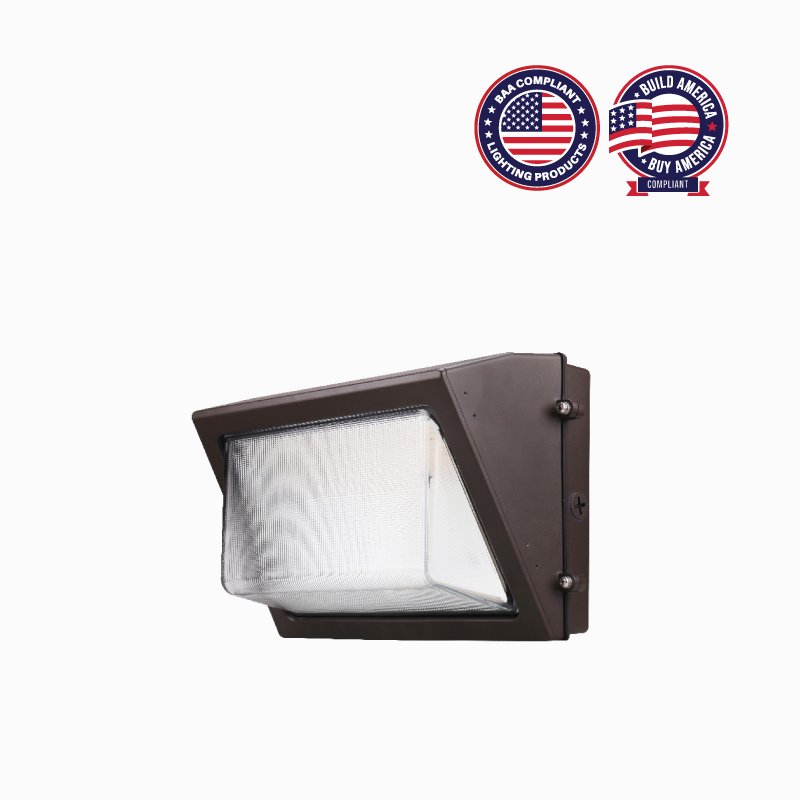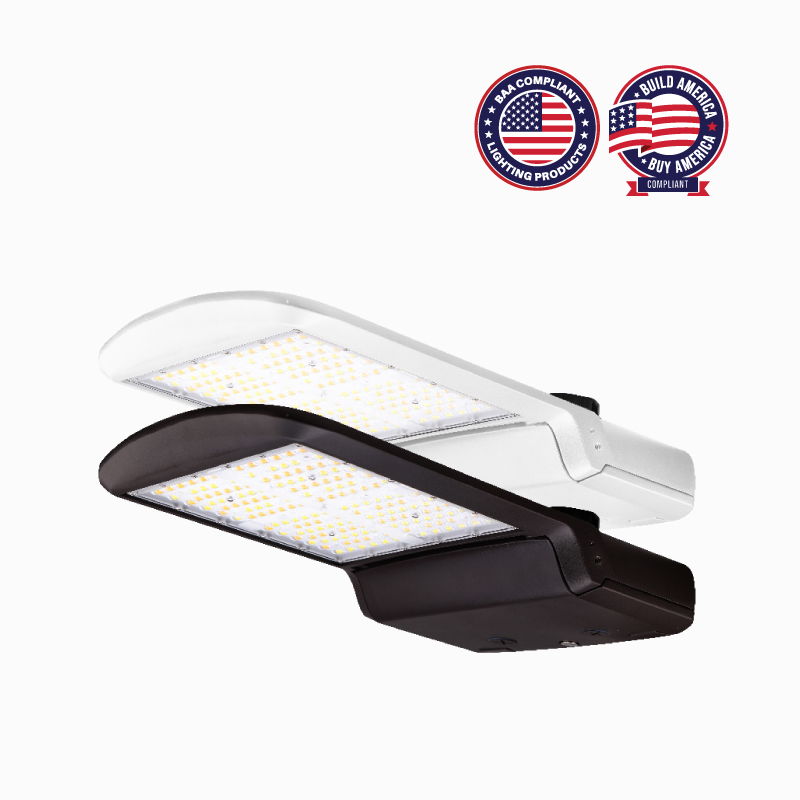- Home
- /
- BAA and BABAA Guidance
BAA and BABAA Guidance
Everything About Domestic Procurement Regulations & Federal Compliance
Regulatory Standards for Federal Projects
Projects funded by federal, state, or municipal entities are mandated to use domestic products that comply with the Buy American Act (BAA) or the Build America, Buy America Act (BABAA) standards. For compliance, a specific percentage of a product's components must be of U.S. origin—65% for BAA and 55% or more (substantially all) for BABAA, as of 2024. These provisions are particularly relevant for LED lighting projects seeking eligibility for federal funding.
Key Compliance Insights
Explore key differences between BAA and BABAA regulations governing infrastructure projects using American made materials and components.
Buy American Act (BAA)
The Buy American Act (BAA) is a key federal policy designed to prioritize the procurement of domestic goods in government projects. To comply with the BAA, products must be manufactured in the United States, and a significant portion of their components must be sourced domestically (with the current requirement set at 65% as of 2024). Robust verification processes, such as supplier certifications and documentation reviews, are essential to demonstrate adherence to these standards.
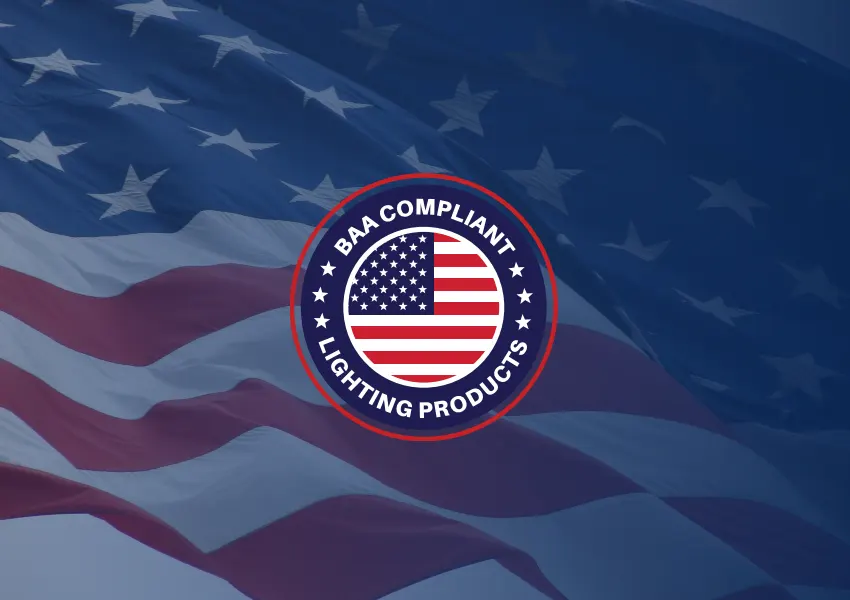
Build America, Buy America Act (BABAA)
The Build America, Buy America (BABAA) Act, part of the Infrastructure Investment and Jobs Act (IIJA) of 2021, mandates that products are manufactured in the US, with domestic components making up more than 55% (substantially all) of the total cost. By focusing on three categories: iron or steel products, construction materials, and manufactured goods, including LED lighting, BABAA seeks to strengthen domestic industries through direct federal funding.
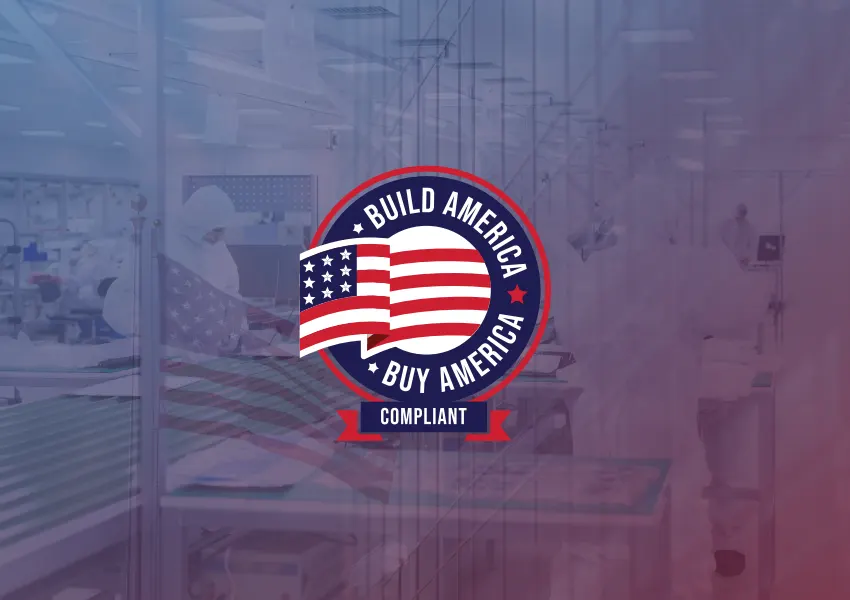
Made in America
"Made in America compliance, governed by the Federal Trade Commission (FTC), sets a separate but important standard that supports both consumer transparency and federal procurement integrity. Under the FTCs Made in USA Labeling Rule, a product can only be labeled as Made in USA if all or virtually all of its parts and processing take place in the United States. This means the product s final assembly, major components, and all significant processing must be domestic.
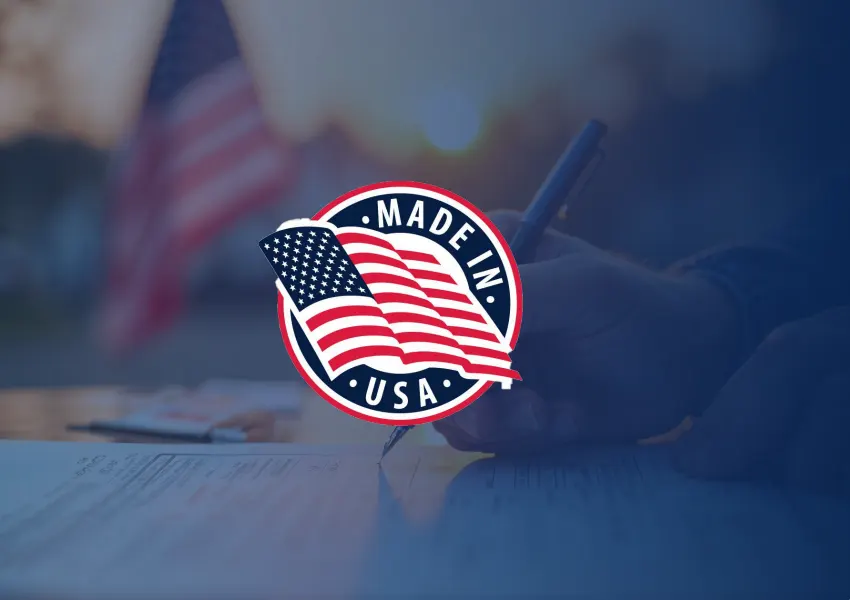
Comparison Between BAA and BABAA Regulations
| Aspect | Buy American Act (BAA) | Build America, Buy America Act (BABAA) |
|---|---|---|
| Enactment | 1933 | 2021 (1) |
| Scope of Application | Direct Federal Procurements | Federally Funded Infrastructure Projects *Funded through federal grants or loans |
| Domestic Content Requirement | 65% As of 2024 *Projected Increase: 75% by 2029 | Category-Specific Thresholds (2) |
| Product Categories Covered | End Products & Construction Materials (3) | Iron, Steel, Construction Materials & Manufactured Goods *Includes LED lights |
| Federal Regulatory Authorities | FAR & DFARS *Primarily FAR, with DFARS for defense-related projects | OMB, MIAO & Agencies Distributing Federal Funds |
| Waivers | Allowed (4) | Allowed But Are Less Common (5) |
| Exceptions | Certain Trade Agreements & Small Procurements | Small Components or Limited Domestic Items (6) |
Notes:
- The Build America, Buy America Act (BABAA) was enacted as part of the Infrastructure Investment and Jobs Act (IIJA) in November 2021.
- Mandates that all iron, steel, manufactured products, and construction materials used in infrastructure projects must be US produced. Compliance thresholds vary by product category, but the overarching requirement is maximum domestic sourcing.
- Focuses on end products and construction materials, such as steel and iron for public construction projects.
- Waivers under certain conditions, such as public interest, unavailability, or excessive cost. They are granted when adherence to BAA seems impractical.
- Waivers are less common and subject to stricter scrutiny. Requires public posting and detailed justification, ensuring exceptions are made only when necessary.
- Exemptions are allowed for small components or items not available domestically in sufficient quantity, but they are carefully regulated.
Comparison Between BAA and BABAA Regulations
| Component | Buy American Act (BAA) | Build America, Buy America Act (BABAA) |
|---|---|---|
| Domestic Manufacturing | Products must be manufactured in the USA with over 50% domestic components | Significant portion of manufacturing must occur in the U.S. |
| Quality Standards | High standards for reliability and performance | Stringent standards for durability and long term performance |
| Economic Impact | Supports domestic manufacturing and job creation | Boosts U.S. economy and reduces foreign dependency |
| Waivers and Exceptions | Available for domestic products that are unavailable or too costly | More limited and requires stricter scrutiny |
| Trade Agreements | Trade agreements may waive BAA compliance for eligible countries | Agreements must support BABAA compliance, stricter eligibility |
| Cost of Compliance | Not specifically detailed | Specific thresholds for U.S. made products |
| Contractor Impact | All manufacturers must meet compliance requirements | All materials and components must be verified for origin |
Impact of BAA & BABAA on High-Performance Lighting Solutions
- Benefits of BAA Compliant Lighting
- Economic Value: Supports American manufacturing and local job creation by prioritizing domestic sourcing in federal procurement.
- Performance & Reliability: Products built under BAA compliance meet stringent quality standards to ensure durability and consistent performance across applications.
- Government Eligibility: Enables access to federally funded contracts and infrastructure projects, creating a steady pipeline of opportunities for compliant manufacturers.
- Compliance Readiness: Helps organizations stay aligned with federal mandates, including Buy American and Trade Agreement Acts, reducing the risk of disqualification from projects.
- Benefits of BABAA Compliant Lighting
- Energy Efficiency: Designed to lower operational costs by reducing energy consumption, making them ideal for long term infrastructure investments.
- Built to Last: High grade materials and U.S. based manufacturing contribute to extended product life and reduced maintenance cycles.
- Smart Technology Integration: Many BABAA certified products feature advanced capabilities like dimming and smart controls.
- Wider Impact: Reinforces energy independence and environmental stewardship while aligning with federal sustainability goals.
Practical Guidance for Compliance
- Maintaining BAA Compliance
- Define Project Scope: Clearly establish whether BAA applies and to what extent, especially in terms of required domestic content.
- Source Strategically: Work with suppliers that provide verified BAA compliant lighting and materials.
- Document Thoroughly: Keep detailed records, including certificates of origin and compliance documentation, to meet federal audit requirements.
- Understand Waivers & Trade Agreements: Know when trade agreements or agency specific rules might take precedence over BAA.
- Maintaining BABAA Compliance
- Know the Standards: Understand BABAA requirements thoroughly, especially if your project involves infrastructure and federal funding.
- Vet Suppliers Carefully: Choose manufacturers with strong documentation practices and transparent domestic production workflows.
- Track Manufacturing Location: Ensure substantial manufacturing or final assembly occurs within the U.S., as required by BABAA.
- Engage Legal Oversight: For complex procurements, consult compliance experts or legal professionals to ensure you stay within BABAA and related trade law boundaries.
Key Aspects
Substantiation
Companies must have documented evidence to support Made in USA claims, including cost breakdowns for goods sold, direct labor, and overhead.
Transparency
Manufacturers are encouraged to communicate the origin of products, including key stages of sourcing, assembly, and final processing, to ensure clarity and consumer trust.
Penalties
Violations of the Made in USA standard can lead to civil penalties under the FTC Act, including fines and corrective action for misleading labels or marketing claims.
Foreign Content
While limited foreign components may be used, they must be insignificant in both cost and role. The product's value must overwhelmingly reflect U.S. based parts and processing.

